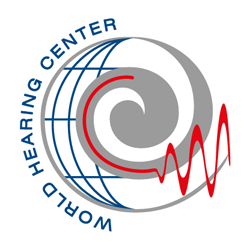Current Issue
Volumes and Issues
For Authors
Manuscript Guidelines
Review Process
Conflict of Interest
Copyright
About the Journal
Editorial Board
Aim and Scope
Policy and Ethical Guidelines
Promotion of the Journal
Print-Version Subscription
Publisher and Contact Information
Contact Information
Sign in
REVIEW PAPER
ASSESSMENT OF CENTRAL AUDITORY PROCESSING DISORDER IN CHILDREN AND ADOLESCENTS TREATED WITH METHYLPHENIDATE DUE TO ATTENTION DEFICIT DISORDER: SYSTEMATIC REVIEW
1
Posgrado, Escuela Superior de Medicina, Instituto Politécnico Nacional, México, Mexico
2
Servicio de Audiología, Hospital del Niño Poblano, Mexico
3
Subdirección de Medicina de Rehabilitación, Instituto Nacional de Rehabilitación “Luis Guillermo Ibarra Ibarra”, Mexico
4
Servicio de Audiología, Instituto Nacional de Rehabilitación “Luis Guillermo Ibarra Ibarra”, Mexico
A - Research concept and design; B - Collection and/or assembly of data; C - Data analysis and interpretation; D - Writing the article; E - Critical revision of the article; F - Final approval of article;
Submission date: 2020-04-22
Final revision date: 2020-05-26
Acceptance date: 2020-06-03
Publication date: 2020-08-24
Corresponding author
José Alfredo Sierra-Ramírez
Posgrado, Escuela Superior de Medicina, Instituto Politécnico Nacional, México, email: alfsierra08@yahoo.com
Posgrado, Escuela Superior de Medicina, Instituto Politécnico Nacional, México, email: alfsierra08@yahoo.com
J Hear Sci 2020;10(2):20-26
KEYWORDS
TOPICS
ABSTRACT
Background:
Improvement in central auditory processing (CAP) test results has been reported in children with attention deficit disorder (ADD) who have been treated with methylphenidate (MPH).
Objective:
To determine the effect of MPH on CAP tests in school-aged children and adolescents with ADD, with or without hyperactivity.
Methods:
A systematic review was carried out following the Prisma methodology in The Cochrane Library, Medline, Embase, and Lilacs data bases. Randomized (RCT) and non-randomized (NRCT) clinical trials were included, involving male and female patients between 6 and 18 years old, with normal audition and intelligence and diagnosed with ADD; they were given MPH treatment and the results of CAP tests were compared to placebo or non-MPH treatment.
Results:
Five studies (two RCTs and three NRCTs) reported on 187 participants of both sexes, between 6 and 15 years old, of which 135 individuals met the diagnostic criteria for ADD and 44 presented ADD with central auditory processing (CAP) disorder, with 52 individuals used as controls. MPH treatment produced an increase in the performance of the speech-in-noise test (0.38 SMD [95% CI 0.11 to 0.66] [Z = 2.7, p = 0.007]), staggered spondaic words test (0.35 SMD [95% CI 0 to 0.69] [Z = 1.95, p = 0.05]) and filtered word test, frequency pattern test, and phonemic synthesis test (0.35 SMD [95% CI 0.01 to 0.68] [Z = 2.03, p = 0.04]. Also, continuous performance tests showed a decrease in the number of errors and inattentions (–0.77 SMD [95% CI –1.17 to –0.37] [Z = 3.79, p = 0.0002]) concerning the control group. The evidence was consistent, accurate, and with low heterogeneity.
Conclusions:
MPH has a significant and favorable effect on the CAP tests of children and adolescents with ADD.
Improvement in central auditory processing (CAP) test results has been reported in children with attention deficit disorder (ADD) who have been treated with methylphenidate (MPH).
Objective:
To determine the effect of MPH on CAP tests in school-aged children and adolescents with ADD, with or without hyperactivity.
Methods:
A systematic review was carried out following the Prisma methodology in The Cochrane Library, Medline, Embase, and Lilacs data bases. Randomized (RCT) and non-randomized (NRCT) clinical trials were included, involving male and female patients between 6 and 18 years old, with normal audition and intelligence and diagnosed with ADD; they were given MPH treatment and the results of CAP tests were compared to placebo or non-MPH treatment.
Results:
Five studies (two RCTs and three NRCTs) reported on 187 participants of both sexes, between 6 and 15 years old, of which 135 individuals met the diagnostic criteria for ADD and 44 presented ADD with central auditory processing (CAP) disorder, with 52 individuals used as controls. MPH treatment produced an increase in the performance of the speech-in-noise test (0.38 SMD [95% CI 0.11 to 0.66] [Z = 2.7, p = 0.007]), staggered spondaic words test (0.35 SMD [95% CI 0 to 0.69] [Z = 1.95, p = 0.05]) and filtered word test, frequency pattern test, and phonemic synthesis test (0.35 SMD [95% CI 0.01 to 0.68] [Z = 2.03, p = 0.04]. Also, continuous performance tests showed a decrease in the number of errors and inattentions (–0.77 SMD [95% CI –1.17 to –0.37] [Z = 3.79, p = 0.0002]) concerning the control group. The evidence was consistent, accurate, and with low heterogeneity.
Conclusions:
MPH has a significant and favorable effect on the CAP tests of children and adolescents with ADD.
Share
RELATED ARTICLE
We process personal data collected when visiting the website. The function of obtaining information about users and their behavior is carried out by voluntarily entered information in forms and saving cookies in end devices. Data, including cookies, are used to provide services, improve the user experience and to analyze the traffic in accordance with the Privacy policy. Data are also collected and processed by Google Analytics tool (more).
You can change cookies settings in your browser. Restricted use of cookies in the browser configuration may affect some functionalities of the website.
You can change cookies settings in your browser. Restricted use of cookies in the browser configuration may affect some functionalities of the website.



